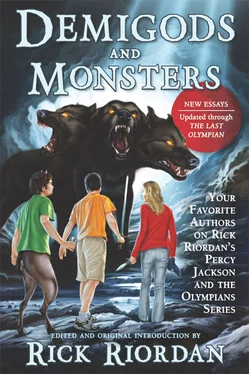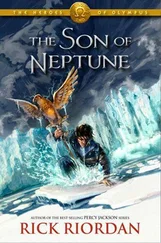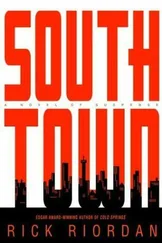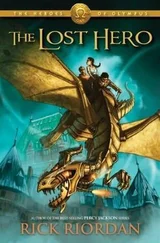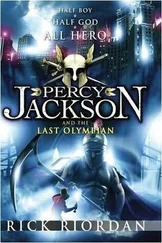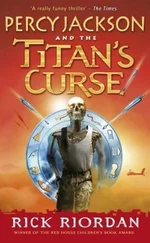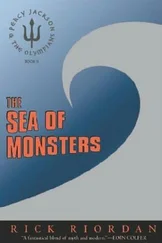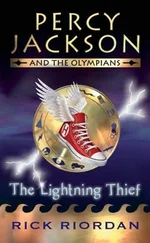Whether you are dealing with the bull-headed simplicity of the Minotaur or the conniving ferocity of the Furies, if a god has sent a monster after you, there is little you can do to avoid it. So you may be wondering why I bother to mention it in a lesson about avoiding monstrous conflict.
If you are a hero, and a vengeful (or possibly just bored) god has sent a monster after you, you may not be able to steer clear of it, but early recognition of the threat will allow you to control the battlefield; wise tactics can even things out between unmatched opponents.
For instance, if you were a hero with a fire-breathing chimera on your trail, then you’d want to arrange your confrontation near a handy water source—or at least away from combustible materials. By identifying the monster early, you can lead it away from innocent bystanders, troublesome eyewitnesses, and destructible buildings. You should always try to limit collateral injuries and property damage, as it reduces the chance you will become wanted by conventional authorities.
This is a case where Percy’s adventures show us how not to deal with monsters. Think of how much easier his life would be if he didn’t spend so much time wanted by the police for blowing up cars, buses, school gymnasiums, and national monuments. Mortal law enforcement may not seem like much of a threat compared to a phalanx of bronze bulls or a pack of hellhounds, but why add unnecessary inconveniences to an already complicated quest?
Lesson Three: Spotting a Monster
Monster recognition isn’t just about memorizing the names and types of creatures you may encounter, though that doesn’t hurt. If you’re wondering whether your algebra teacher is a Fury or just a mean old lady with a lot of cats, the most important thing is to use your head, starting with your eyes, ears, and nose.
Creatures with a nature spirit in their parentage, like nymphs, satyrs, and Cyclopes, can smell a monster easily. However, it isn’t convenient to keep a nymph or satyr with you at all times. A smart demigod must learn to pay attention to his or her nose. This takes practice, since we spend a lot of our lives trying not to smell things. The drugstore has entire aisles dedicated to soap and deodorant, powders and perfumes and air fresheners, so that we never have to be troubled by an unpleasant scent. [8] None of which apparently changes the fact that monsters can smell heroes pretty easily.
Fortunately, monsters don’t generally worry about such things, which makes them easier to spot. Man-eating giants do not floss. While no one likes to accuse his or her classmate of having halitosis or b.o., if your new gym partner could knock over a double-decker bus with his breath, this may be a sign you need to lace up your sneakers and get ready for a fight.
Still on the fence over whether your vice principal is a Manticore? Perhaps you could “accidentally” set off the fire sprinklers in class. If he smells like the fur of a wet dog under his suit, you had better skip detention.
In the world of the Olympians, the Mist may obscure your vision, but the wise hero could use that to his advantage. If you can’t remember what your lab partner looks like or have a hard time looking him in the eye, the Mist might be a factor, something that would only happen if you were dealing with a nonhuman.
Also, you can study the way the person dresses. We try to be sensitive to cultural differences in clothing, but a clever monster [9] This isn’t always an oxymoron, any more than “wise hero” is.
may count on this to disguise its disguise. A head-to-toe veil may be perfectly innocent, or it may hide a face that could stop a clock—literally—by turning it into stone.
You should pay attention, as well, to fashion choices. Since monsters never die, they have trouble staying up-to-date with fads in clothes and hobbies. [10] Or, more likely, they just don’t care.
If your new teacher dresses in a tiger-striped Hawaiian shirt every day, or the new kid in school has never heard of a PlayStation, you might not want to turn your back on them.
As long as you keep your eyes and ears open, monsters—with few exceptions—will be pretty easy to spot. Some of them are crafty, but they’re really not very good at pretending to be human. Some can manage it for a little while but will usually give themselves away to a hero who is paying attention. The problem is that most heroes—not Percy and his companions, of course—may be too focused on finding the treasure or finding their quest to pay attention.
While something that is off or odd should put you on guard, no one thing—smelly breath or rude manners or bad fashion—may be conclusive by itself. It would be a shame to get expelled from school (or arrested) for trying to stab the principal with a ballpoint pen just because he doesn’t use enough deodorant. [11] Which you wouldn’t, because you can tell the difference between fiction and reality. If you can’t, then you have a bigger problem than mythical monsters.
This is where Percy gives us a very good example of how to deal with monsters: Look at the whole picture. The most important thing he does when he is dealing with a mythical creature is to use his brain. If nothing else, it might take his opponent off-guard. No one really expects a clever hero; the training tends to focus more on the muscles than the mind.
Remember the cardinal rule when dealing with monsters, sorcerers, and gods: If it seems too good to be true, it probably is . An offer of something for nothing should always put a hero on his guard, and no other sense will tell you that other than your common one.
Percy Jackson
One of the most admirable things about Percy Jackson is that he has learned from his mistakes over the course of his adventures. [12] At least in his dealings with monsters. In other matters, he still seems pretty clueless. Romance, for example (at least until he and Annabeth get together).
His classical education is almost nonexistent, but he demonstrates that successfully dealing with a monster takes more than memorization of facts and history. A hero has to observe all the fine points that make a monster stand out from what passes for normal in the mortal world. A creature with an unusual number of heads is obvious. More often, what Percy notices are the many small details that add up to two things: a monster, and immediate danger. [13] This is, perhaps, a product of the hero’s natural attention to so many details at a time, i.e., his ADHD.
This doesn’t only apply to identifying monsters and killing them but to how he interacts with all nonhumans. In his adventures, Percy uses these many details to decide how to deal with each monster on an individual basis. He rescues monsters, even protects and befriends them. Perhaps this open-mindedness is a result of having a Cyclops for a brother.
Or perhaps this is simply part of his personality and something else that sets him apart among heroes. In his encounters with gods and monsters, Percy Jackson uses not just his muscles and his mind but his heart. It makes him difficult to predict and control, which is why the gods consider him so potentially dangerous while the prophecy remains unfulfilled.
But it also makes him a hero, not just in the classical, demigod sense, but of the human kind too. That’s the most important lesson we can take away from the Percy Jackson and the Olympians books. You may never have to deal with Manticores and Gorgons, and the Minotaur may not be waiting to ambush you on the way to school, but we all have to deal with our own monsters: bullies, peer pressure, stranger danger, prejudice, new kids in school . . . an endless list that makes our world challenging even if we aren’t demigods.
Читать дальше
